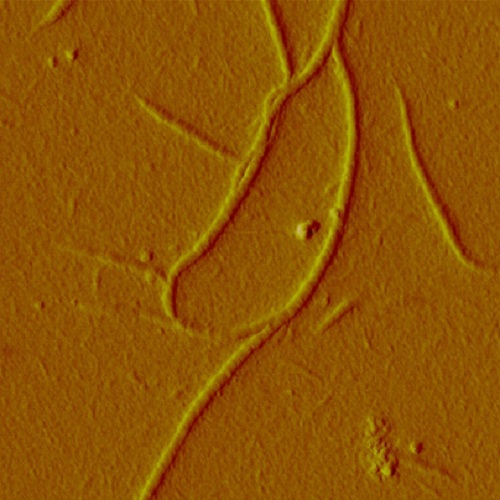Jellyfish collagen scaffolds for cartilage tissue engineering.
Porous scaffolds were engineered from refibrillized collagen of the jellyfish Rhopilema esculentum for potential application in cartilage regeneration. The influence of collagen concentration, salinity and temperature on fibril formation was evaluated by turbidity measurements and quantification of fibrillized collagen. The formation of collagen fibrils with a typical banding pattern was confirmed by atomic force microscopy and transmission electron microscopy analysis. Porous scaffolds from jellyfish collagen, refibrillized under optimized conditions, were fabricated by freeze-drying and subsequent chemical cross-linking. Scaffolds possessed an open porosity of 98.2%. The samples were stable under cyclic compression and displayed an elastic behavior. Cytotoxicity tests with human mesenchymal stem cells (hMSCs) did not reveal any cytotoxic effects of the material. Chondrogenic markers SOX9, collagen II and aggrecan were upregulated in direct cultures of hMSCs upon chondrogenic stimulation. The formation of typical extracellular matrix components was further confirmed by quantification of sulfated glycosaminoglycans.

- Acta Biomater 2014 Feb 30;10(2):883-92
- 2014
- Medical Biology
- 24184178
- PubMed
Enabled by:
